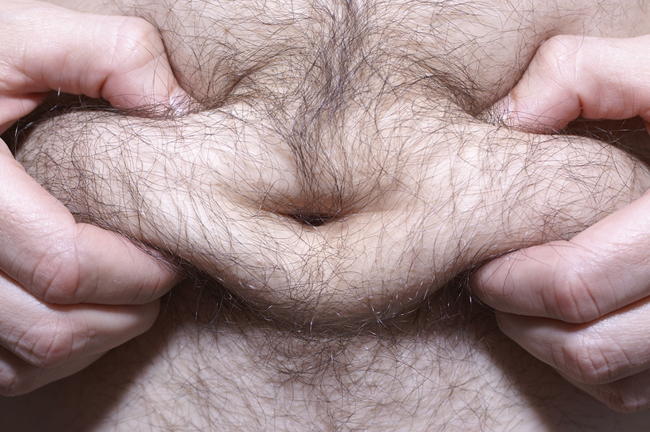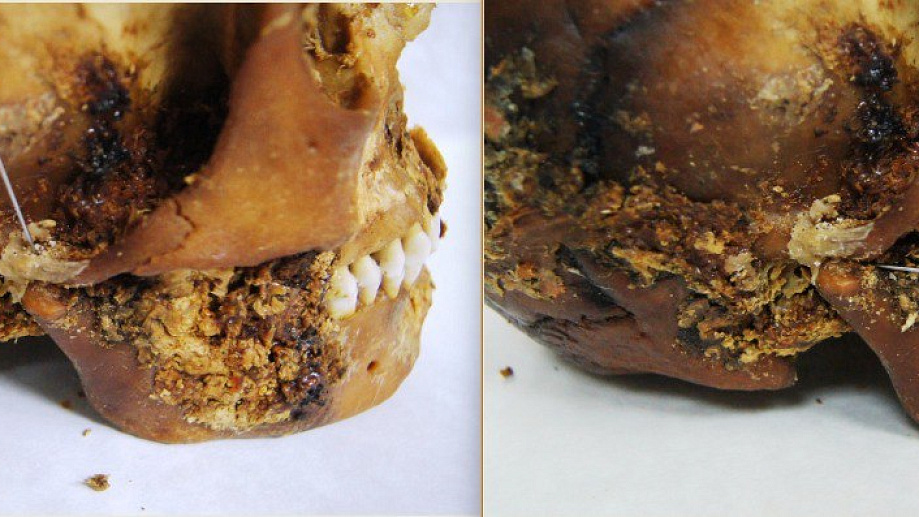The Culture of Weight Gain

Get the world’s most fascinating discoveries delivered straight to your inbox.
You are now subscribed
Your newsletter sign-up was successful
Want to add more newsletters?

Delivered Daily
Daily Newsletter
Sign up for the latest discoveries, groundbreaking research and fascinating breakthroughs that impact you and the wider world direct to your inbox.

Once a week
Life's Little Mysteries
Feed your curiosity with an exclusive mystery every week, solved with science and delivered direct to your inbox before it's seen anywhere else.

Once a week
How It Works
Sign up to our free science & technology newsletter for your weekly fix of fascinating articles, quick quizzes, amazing images, and more

Delivered daily
Space.com Newsletter
Breaking space news, the latest updates on rocket launches, skywatching events and more!

Once a month
Watch This Space
Sign up to our monthly entertainment newsletter to keep up with all our coverage of the latest sci-fi and space movies, tv shows, games and books.

Once a week
Night Sky This Week
Discover this week's must-see night sky events, moon phases, and stunning astrophotos. Sign up for our skywatching newsletter and explore the universe with us!
Join the club
Get full access to premium articles, exclusive features and a growing list of member rewards.
You parents might be to blame for your weight gain problems. We're not taking about genes, though. In my case, it's all the delicious food my Italian mom makes for me. I gained several pounds over the holidays, and the fault lies entirely with her, not my weak will.
Most of us, when we go back home, likely have the opposite experience as Naomi Moriyama, author of "Japanese Women Don't Get Old or Fat: Secrets of My Mother's Tokyo Kitchen." Moriyama says she gained 20 pounds in just a few months after moving to the United States for college and lost the weight when she returned to Japan.
Her mother's Japanese cooking erased the abuse she endured on American cuisine. The book is an unintended eye-opener to the relationship between genes and culture.
What's in a name
The book title is enough to get anyone's "bad medicine" senses tingling. This is clearly a rip on "The French Diet: Why French Women Don't Get Fat," by Michel Montignac, which itself was a rip on "French Women Don't Get Fat: The Secret of Eating For Pleasure," by Mireille Guiliano, apparently built on the style of "The Colon Mark: Why Does Every Book Title Need One?"
| Bad Medicine Bad Medicine appears each Tuesday on LiveScience. Previous columns: Some Very Fishy Diet Advice In Japan, Even Children Love The Vegetables Top 10: Good Foods Gone Bad |
| Bad Medicine |
| Bad Medicine appears each Tuesday on LiveScience. Previous columns: Some Very Fishy Diet Advice In Japan, Even Children Love The Vegetables Top 10: Good Foods Gone Bad |
The problem with the French books is that French women do get fat. More than 43 percent are overweight and more than 11 percent are obese, according to the International Obesity Task Force. While this is better than the United States, where one-third of women are obese, the authors are tapping into the myth of the slim and fashionable French woman.
Such trite book titles are usually blatantly false. "Sharks Don't Get Cancer: How Shark Cartilage Could Save Your Life" by William Lane comes to mind. This little packet of false hope caused many a cancer patient to shell out hard-earned money on shark cartilage pills, which dissolve in stomach acid and do nothing to cure cancer.
Get the world’s most fascinating discoveries delivered straight to your inbox.
But there's a good amount of truth in Moriyama's title. The female obesity rate in Japan is about 3 percent, according to the World Health Organization, the lowest by far among developed nations except for South Korea, which has a similar rate. The female life expectancy in Japan is 85 years, five years longer than most developed nations. Japan in fact has the highest number of centenarians, 14 per 10,000.
The diet and culture, more than genetics, might have something to do with this, because Japanese women (and men) often get fat after living in the United States for a few months. And Japanese who immigrate to America have the same rates of cancer and heart disease as other Americans after a generation or two.
The Philly diet
With no respect for copyright in the publishing world these days, I suggest the book title, "The Philly Diet: Why Italian-American Men Do Get Fat." I gained weight because my lifestyle was greatly altered. For a week I ate hardly any vegetables and instead filled myself up on meatball and sausage sandwiches at home and cheesesteaks and pork sandwiches on the street.
Worse, I brought leftovers back to Washington with me. My mom forced unopened bottles of soda on me, too, because she had no use for them. Each glass was 100 or 200 empty calories—calories I never would have consumed had I kept to green tea. The calories have to go somewhere.
I, too, have a Japanese connection: my wife. And as a result of her cultural influence, I am now avoiding the kind of weight gain afflicting my Philly brethren. And I'm greatly reducing my risk of heart disease, which took my father and grandfather at very early ages. I'm using lifestyle to trump genetics.
The Japanese diet
Moriyama's book is a fine introduction to Japanese cooking, although it would make any Japanophile snicker. Cosmopolitan Tokyo, her home city, is unlike the rest of Japan and has arguably the worst food in the country. The book title is akin to reminiscing about your mother's traditional Manhattan cooking.
But Moriyama does relay the basics on making low-fat and healthy meals with the introduction of only a couple exotic foods now available in many Western stores: daikon (big, white radish), bonito flakes (dried, shaved fish) and seaweed. One key element is the preparation of many small dishes with each meal. The variety packs a nutritional punch and helps limit the amount you eat.
This leads to the Japanese phrase "hara hachibun me," or "eat until you're 80 percent full." Unfortunately in Philly, I ate until I was 180 percent full.
Christopher Wanjek is the author of the books “Bad Medicine” and “Food At Work.” Got a question about Bad Medicine? Email Wanjek. If it’s really bad, he just might answer it in a future column. Bad Medicine appears each Tuesday on LIveScience.
- Top 10: Good Foods Gone Bad
- Bad Habits: Why We Can't Stop
- The Myth of the Fat Gene

Christopher Wanjek is a Live Science contributor and a health and science writer. He is the author of three science books: Spacefarers (2020), Food at Work (2005) and Bad Medicine (2003). His "Food at Work" book and project, concerning workers' health, safety and productivity, was commissioned by the U.N.'s International Labor Organization. For Live Science, Christopher covers public health, nutrition and biology, and he has written extensively for The Washington Post and Sky & Telescope among others, as well as for the NASA Goddard Space Flight Center, where he was a senior writer. Christopher holds a Master of Health degree from Harvard School of Public Health and a degree in journalism from Temple University.
 Live Science Plus
Live Science Plus










